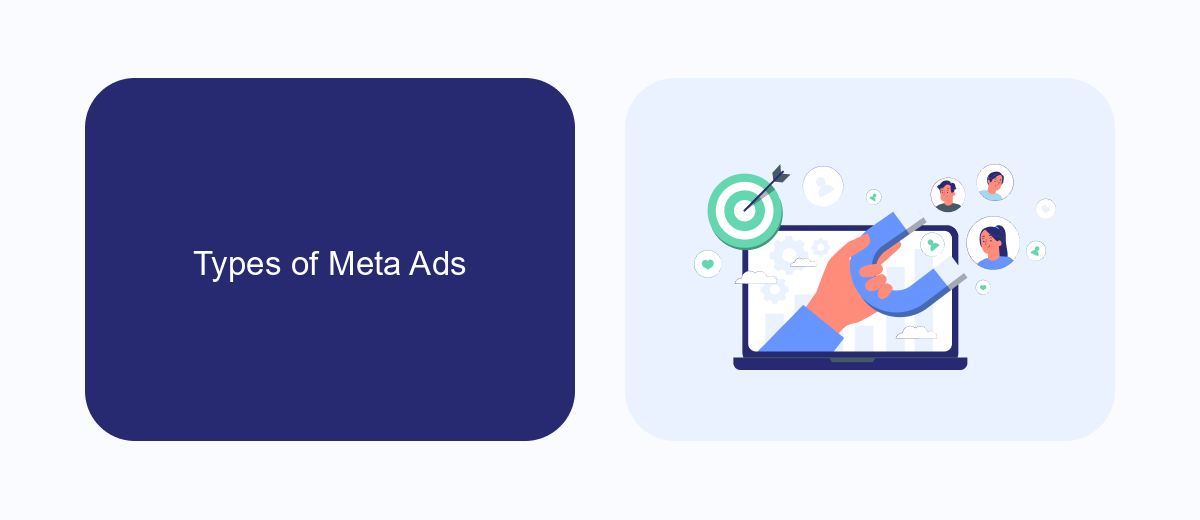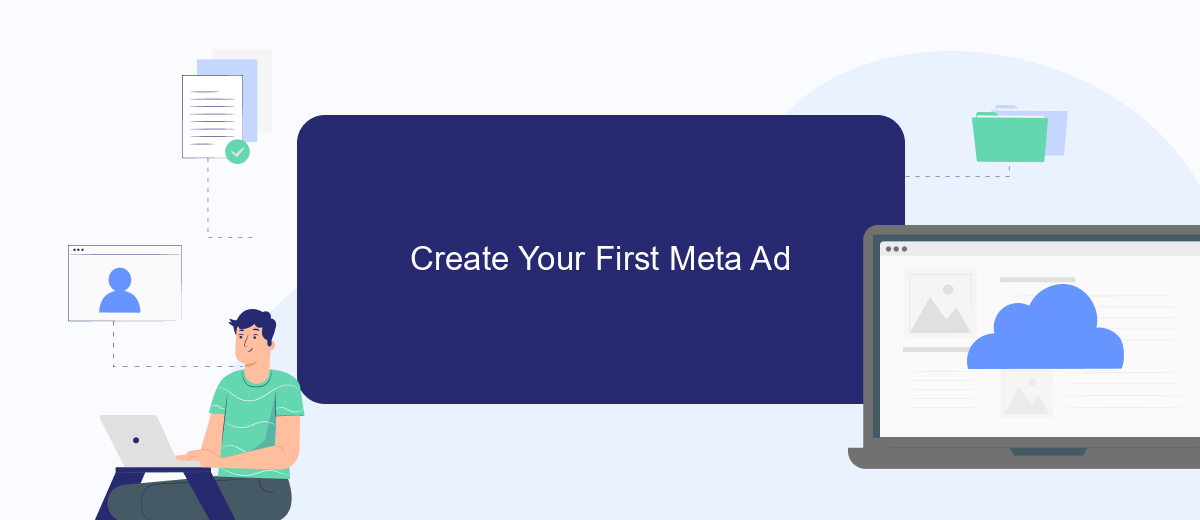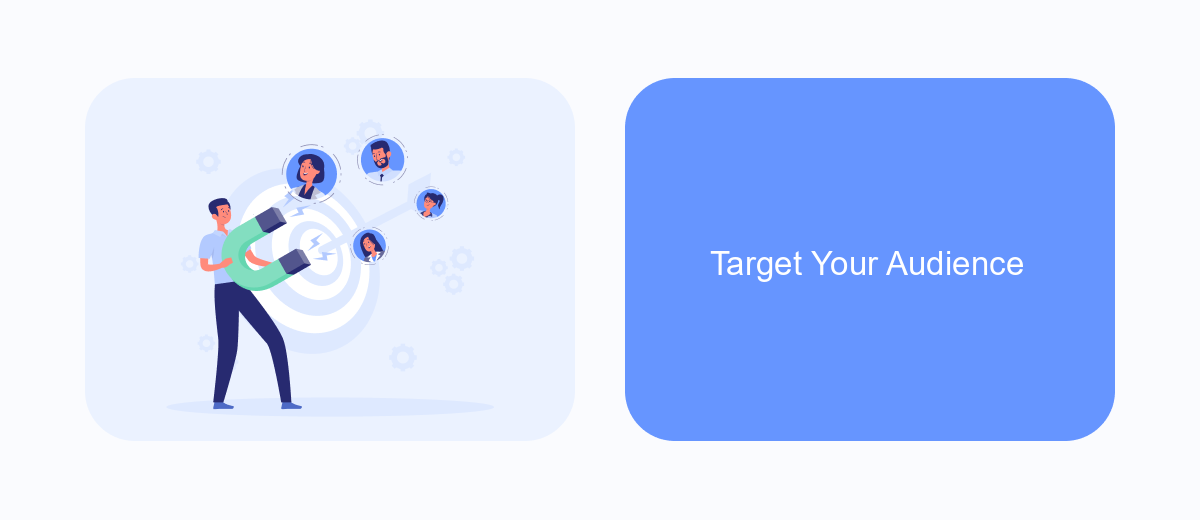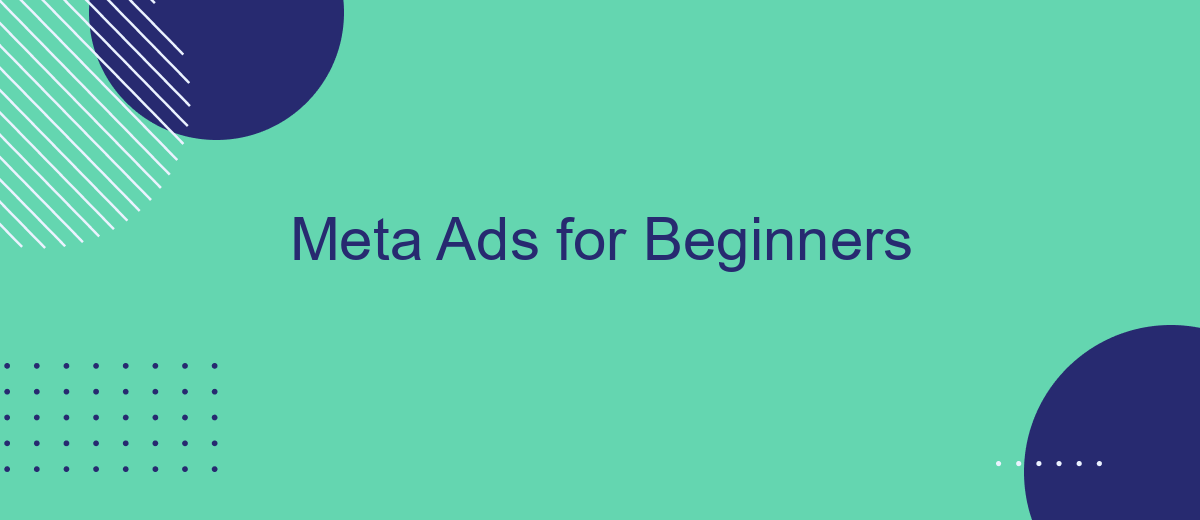Meta ads, also known as Facebook ads, offer a powerful platform for businesses to reach their target audience with precision. Whether you're a small business owner or a marketing professional, understanding the basics of Meta ads can significantly enhance your online presence and drive sales. This beginner's guide will walk you through the essentials, helping you create effective campaigns and maximize your advertising budget.
Why Use Meta Ads
Meta Ads offer a powerful way to reach your target audience effectively and efficiently. With a vast user base across platforms like Facebook, Instagram, and Messenger, Meta provides unmatched opportunities for businesses to engage with potential customers. By leveraging Meta Ads, you can benefit from advanced targeting options, detailed analytics, and various ad formats to suit your marketing goals.
- Advanced Targeting: Reach specific demographics, interests, and behaviors.
- Cost-Effective: Flexible budgeting options to maximize ROI.
- Multiple Ad Formats: Choose from image, video, carousel, and more.
- Detailed Analytics: Track performance and optimize campaigns in real-time.
- Wide Reach: Access billions of users across Meta's platforms.
Utilizing Meta Ads can significantly enhance your digital marketing strategy. Whether you're looking to increase brand awareness, drive traffic to your website, or boost sales, Meta Ads provide the tools and insights needed to achieve your objectives. Start leveraging Meta Ads today to connect with your audience and grow your business.
Types of Meta Ads

Meta Ads offer a variety of formats to help businesses reach their target audience effectively. One of the most popular types is Image Ads, which allow businesses to showcase their products or services through high-quality visuals. These ads are ideal for grabbing attention quickly and are often used to drive traffic to a website or landing page. Another common format is Video Ads, which provide an engaging way to tell a story or demonstrate a product in action. Video Ads can be particularly effective in capturing the viewer's interest and driving higher engagement rates.
Carousel Ads are another versatile option, allowing advertisers to display multiple images or videos within a single ad. This format is perfect for showcasing a range of products or telling a multi-part story. Additionally, Slideshow Ads offer a lightweight alternative to video ads by combining multiple images, text, and sound in a slideshow format. For advanced targeting and integration, services like SaveMyLeads can be utilized to streamline the process of capturing and managing leads generated from Meta Ads. This ensures that businesses can efficiently follow up with potential customers and maximize their advertising ROI.
Create Your First Meta Ad

Creating your first Meta ad is a straightforward process that can help you reach a wider audience and achieve your marketing goals. Follow these simple steps to get started:
- Log in to your Meta Business Suite and navigate to the Ads Manager.
- Click on the "Create" button to start a new campaign.
- Select your campaign objective, such as brand awareness, traffic, or conversions.
- Define your target audience by setting parameters like location, age, interests, and behaviors.
- Choose your ad placements, whether on Facebook, Instagram, or other Meta platforms.
- Set your budget and schedule, deciding how much you want to spend and for how long.
- Create your ad by selecting the format (image, video, carousel, etc.) and uploading your media.
- Write compelling ad copy and include a strong call to action.
- Review your ad settings and click "Publish" to launch your campaign.
Once your ad is live, monitor its performance through the Ads Manager dashboard. Make adjustments as needed to optimize your results and achieve better engagement. With practice, creating effective Meta ads will become second nature.
Target Your Audience

Identifying and targeting the right audience is crucial for the success of your Meta Ads campaign. Start by defining your ideal customer profile based on demographics, interests, and behaviors. This will help you create more personalized and effective ads.
Utilize Meta's audience targeting tools to refine your audience. You can use options like Custom Audiences, Lookalike Audiences, and Detailed Targeting to reach users who are most likely to engage with your ads. The more specific your targeting, the higher the chances of conversion.
- Custom Audiences: Target users based on your existing customer data.
- Lookalike Audiences: Reach new people who are similar to your best customers.
- Detailed Targeting: Filter users by demographics, interests, and behaviors.
Regularly monitor and adjust your audience settings based on the performance data. By continually refining your targeting strategy, you can optimize your ad spend and achieve better results. Remember, the key to successful Meta Ads is reaching the right people at the right time.
- Automate the work with leads from the Facebook advertising account
- Empower with integrations and instant transfer of leads
- Don't spend money on developers or integrators
- Save time by automating routine tasks
Track Your Results
Tracking your results is crucial to understanding the effectiveness of your Meta Ads campaigns. By monitoring key metrics such as click-through rates, conversion rates, and return on ad spend, you can gain valuable insights into what is working and what needs improvement. Utilize Meta's built-in analytics tools to review performance data and make data-driven decisions. Regularly checking these metrics will help you optimize your campaigns for better results and higher ROI.
For more advanced tracking, consider integrating third-party services like SaveMyLeads. This platform allows you to streamline your data collection and automate the process of tracking leads and conversions from your Meta Ads. By setting up integrations with your CRM or other marketing tools, SaveMyLeads can help you maintain a comprehensive view of your campaign performance. This not only saves time but also ensures that you have accurate and up-to-date information to guide your advertising strategy.
FAQ
What is Meta Ads?
How do I create a Meta Ads account?
What are the different types of ads I can create with Meta Ads?
How can I measure the effectiveness of my Meta Ads campaigns?
Is there a way to automate and integrate my Meta Ads campaigns with other tools?
Personalized responses to new clients from Facebook/Instagram. Receiving data on new orders in real time. Prompt delivery of information to all employees who are involved in lead processing. All this can be done automatically. With the SaveMyLeads service, you will be able to easily create integrations for Facebook Lead Ads and implement automation. Set up the integration once and let it do the chores every day.

